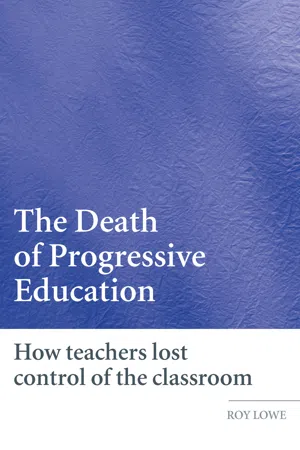
- 192 pages
- English
- ePUB (mobile friendly)
- Available on iOS & Android
About This Book
The first authoritative survey of the changing politics of the classroom since the Second World War. It charts the process by which society moved away from being one in which teachers decided both the content of the school curriculum and how it would be taught towards the present situation in which a host of external influences dictate the nature of the educational experience.
The book identifies the key social and political developments which made this transformation inevitable and, at the same time, raises the question of how far the loss of control by teachers has also meant a shift away from progressive, child-centred education. Key issues covered include:
-
- The post-war debate on the school curriculum as well as the extent to which it was fiercely contested
-
- The Black Paper Movement of the early 1970s
-
- The ways in which radical right rhetoric has come to dominate the politics of education and the educational press
-
- How the term 'progressive education' has been subtly reworked, so that those claiming to reform education now focus on measurable outcomes and the answerability of schools to parental and government pressure
-
- An historical analysis of the ways in which the 'Thatcher revolution' in schools has been taken forward and developed under both John Major and Tony Blair.
This ground-breaking analysis of how we have arrived at the present situation in our schools will be of interest to all students of education and to all those who wish to learn more about the changes that have taken place in our education system over the past sixty years. It helps us understand why they happened and, in so doing, raises profound questions about the aspirations of modern society and the role of the schools in shaping it.
Frequently asked questions
Information
Table of contents
- Cover Page
- Title Page
- Copyright Page
- Acknowledgements
- List of Abbreviations
- Introduction
- 1 Popular Education in England
- 2 The Post-War Educational Settlement
- 3 A Golden Age? The Sixties and Early Seventies
- 4 1974–79
- 5 1979–89
- 6 ‘Forging a New Consensus in Education’
- 7 New Labour and the Curriculum Since 1997
- Conclusions and Prospects
- Notes
- Select Bibliography